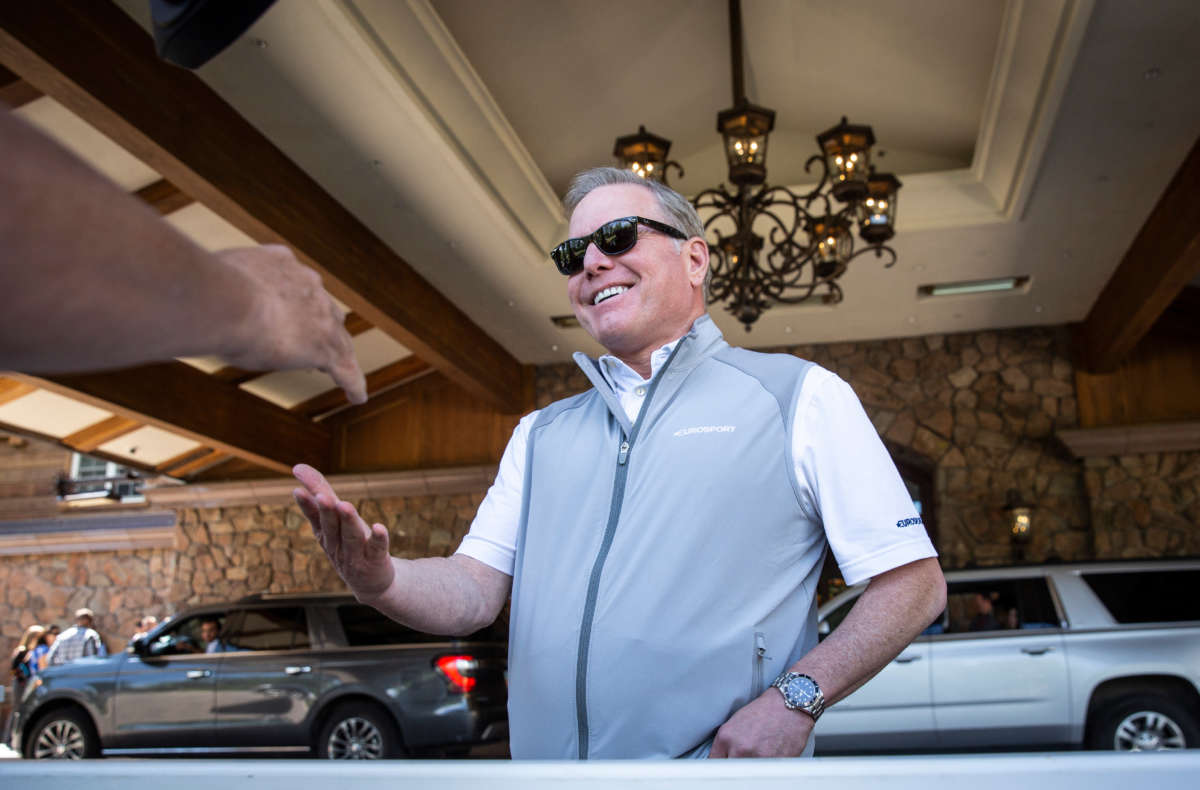While workers’ wages have stagnated in comparison to productivity over the past four decades, CEO pay in the U.S. has skyrocketed at a rate far outpacing the growth of the economy and productivity, a new report by the Economic Policy Institute (EPI) finds.
According to research released by EPI on Tuesday, CEO pay has skyrocketed by a staggering 1,460 percent since 1978. This has far outpaced the growth of the economy and even the pay of the top 0.1 percent, EPI finds, with the S&P stock market growing by 1,063 percent in the same time and the earnings of the top 0.1 percent growing 385 percent between 1978 and 2020.
By contrast, worker pay has remained relatively unchanged since 1978, rising by a mere 18.1 percent over the past 43 years, EPI finds. As a result, the gap between CEO pay and typical worker pay has grown significantly. While CEOs at the top 350 U.S. firms had an estimated average pay of $27.8 million in 2021, the average worker at the same firms made $70,400, the report shows. This is a ratio of about 400 to 1 in 2021 — itself a major multiplication of 1965’s ratio of 20 to 1 and 1978’s ratio of about 30 to 1.
The pandemic in particular accelerated the growth in CEO pay. While millions of people were laid off or furloughed and frontline workers risked their lives to keep basic services running between 2019 and 2021, CEO pay jumped by 30.3 percent. Among workers who were still employed, meanwhile, wages rose by only 3.9 percent.
EPI’s data doesn’t even include the pay of CEO Elon Musk, who has been one of the pandemic’s biggest winners. Researchers specifically chose to exclude Musk and Tesla from their analysis because, if his realized salary, including stock sales, had been included, his pay would have been almost 1,000 times that of the average CEO of a large company. This would have boosted the average CEO pay increase between 2020 and 2021 by over 300 percent.
The trend of growing wage inequality doesn’t appear to be stopping any time soon. The gap between worker and CEO pay has been growing since the late 1970s, around the time the U.S. pivoted into a cruel neoliberalism imposed by leaders like President Ronald Reagan that has been responsible for growing economic inequality ever since.
Indeed, in the face of the current economic crisis and suppressed wages for workers, conservative Federal Reserve Chair Jerome Powell is making moves to “get wages down” — while saying nothing of skyrocketing CEO pay.
Despite a pandemic, CEO pay rose 11.1% from 2020 to 2021—and 1,460% since 1978. CEOs have been able to extract wealth via fat paychecks without matched productivity. But workers? They’re more productive than ever but their pay hasn’t kept up. pic.twitter.com/9t7Klw7At1
— Economic Policy Institute (@EconomicPolicy) October 4, 2022
High CEO pay ratios aren’t a simple symbolic issue, the report says, but rather an issue that affects workers and the economy. Income growth of executives is the largest driving force behind the growing gap between the top 0.1 percent and top 1 percent and the rest of the public, which further concentrates the power of the very richest people in the U.S.
As EPI notes, it doesn’t have to be this way. “Exorbitant CEO pay is a contributor to rising inequality that we could restrain without doing any damage to the wider economy,” EPI economists Josh Bivens and Jori Kandra write. “CEOs are getting ever-higher pay over time because of their power to set pay and because so much of their pay (more than 80 percent) is stock-related. They are not getting higher pay because they are becoming more productive or more skilled than other workers, or because of a shortage of excellent CEO candidates.”
EPI recommends that Congress implement policies to reign in CEO wealth, like setting a higher corporate tax rate for corporations with large CEO pay ratios and setting higher marginal tax rates for the richest Americans.
With fierce opposition to such proposals from rich lobbyists and conservatives in Congress, however, workers appear to be taking matters of stagnant wages and poor working conditions into their own hands. The labor movement has been experiencing a resurgence in response to runaway capitalism exacerbated by the pandemic, and workers are increasingly rising up against the enormous greed that corporations have proudly displayed in recent years.
Join us in defending the truth before it’s too late
The future of independent journalism is uncertain, and the consequences of losing it are too grave to ignore. To ensure Truthout remains safe, strong, and free, we need to raise $31,000 in the next 48 hours. Every dollar raised goes directly toward the costs of producing news you can trust.
Please give what you can — because by supporting us with a tax-deductible donation, you’re not just preserving a source of news, you’re helping to safeguard what’s left of our democracy.
